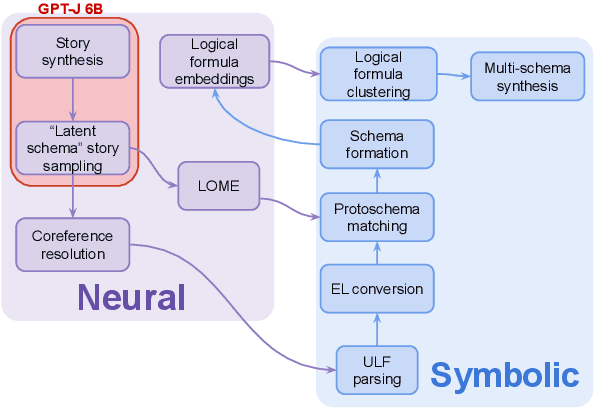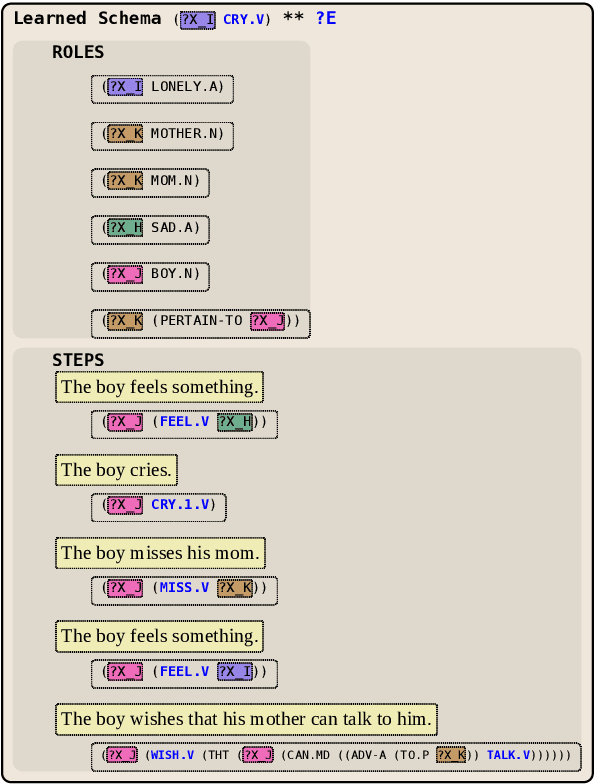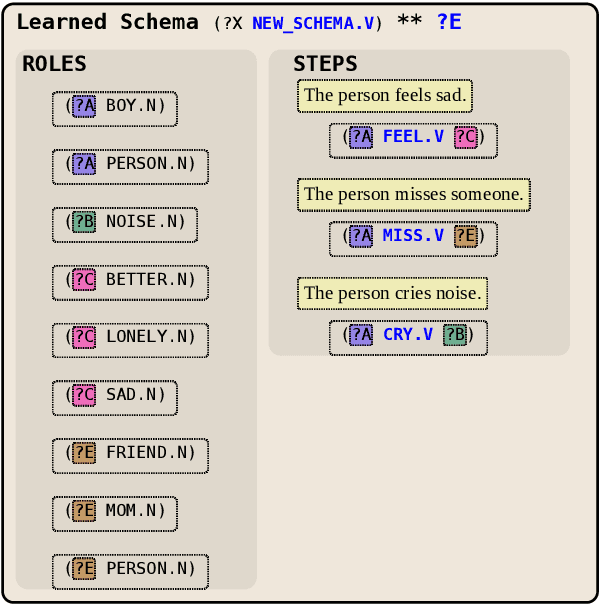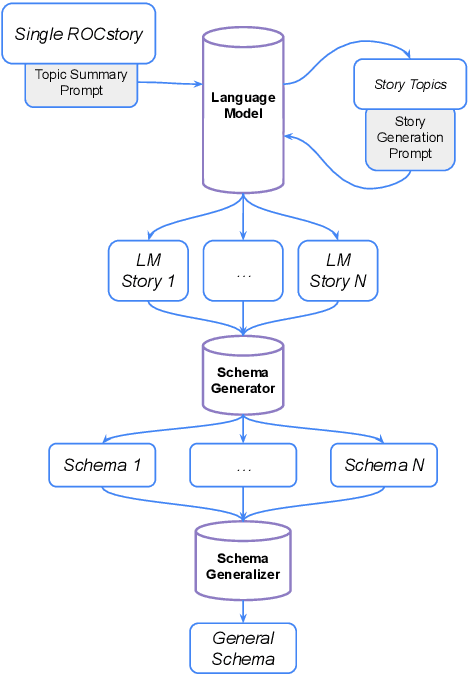Lane Lawley
VAL: Interactive Task Learning with GPT Dialog Parsing
Oct 02, 2023Abstract:Reinforcement learning often requires millions of examples to produce static, black-box models. In contrast, interactive task learning (ITL) emphasizes incremental knowledge acquisition from limited instruction provided by humans in modalities such as natural language. However, in practice, ITL systems often suffers from brittle, error-prone language parsing. Large language models (LLMs) are resistant to brittleness but are not interpretable and cannot learn incrementally. We present VAL, an ITL system with a new philosophy for LLM/symbolic integration. By using LLMs only for specific tasks -- such as predicate and argument selection -- within an algorithmic framework, VAL reaps the benefits of LLMs to support interactive learning of hierarchical task knowledge from natural language. Acquired knowledge is human interpretable and generalizes to support execution of novel tasks without additional training. We studied users' interactions with VAL in a video game setting, finding that most users could successfully teach VAL using language they felt was natural.
Interactive Learning of Hierarchical Tasks from Dialog with GPT
May 17, 2023


Abstract:We present a system for interpretable, symbolic, interactive task learning from dialog using a GPT model as a conversational front-end. The learned tasks are represented as hierarchical decompositions of predicate-argument structures with scoped variable arguments. By using a GPT model to convert interactive dialog into a semantic representation, and then recursively asking for definitions of unknown steps, we show that hierarchical task knowledge can be acquired and re-used in a natural and unrestrained conversational environment. We compare our system to a similar architecture using a more conventional parser and show that our system tolerates a much wider variety of linguistic variance.
Mining Logical Event Schemas From Pre-Trained Language Models
Apr 12, 2022



Abstract:We present NESL (the Neuro-Episodic Schema Learner), an event schema learning system that combines large language models, FrameNet parsing, a powerful logical representation of language, and a set of simple behavioral schemas meant to bootstrap the learning process. In lieu of a pre-made corpus of stories, our dataset is a continuous feed of "situation samples" from a pre-trained language model, which are then parsed into FrameNet frames, mapped into simple behavioral schemas, and combined and generalized into complex, hierarchical schemas for a variety of everyday scenarios. We show that careful sampling from the language model can help emphasize stereotypical properties of situations and de-emphasize irrelevant details, and that the resulting schemas specify situations more comprehensively than those learned by other systems.
 Add to Chrome
Add to Chrome Add to Firefox
Add to Firefox Add to Edge
Add to Edge